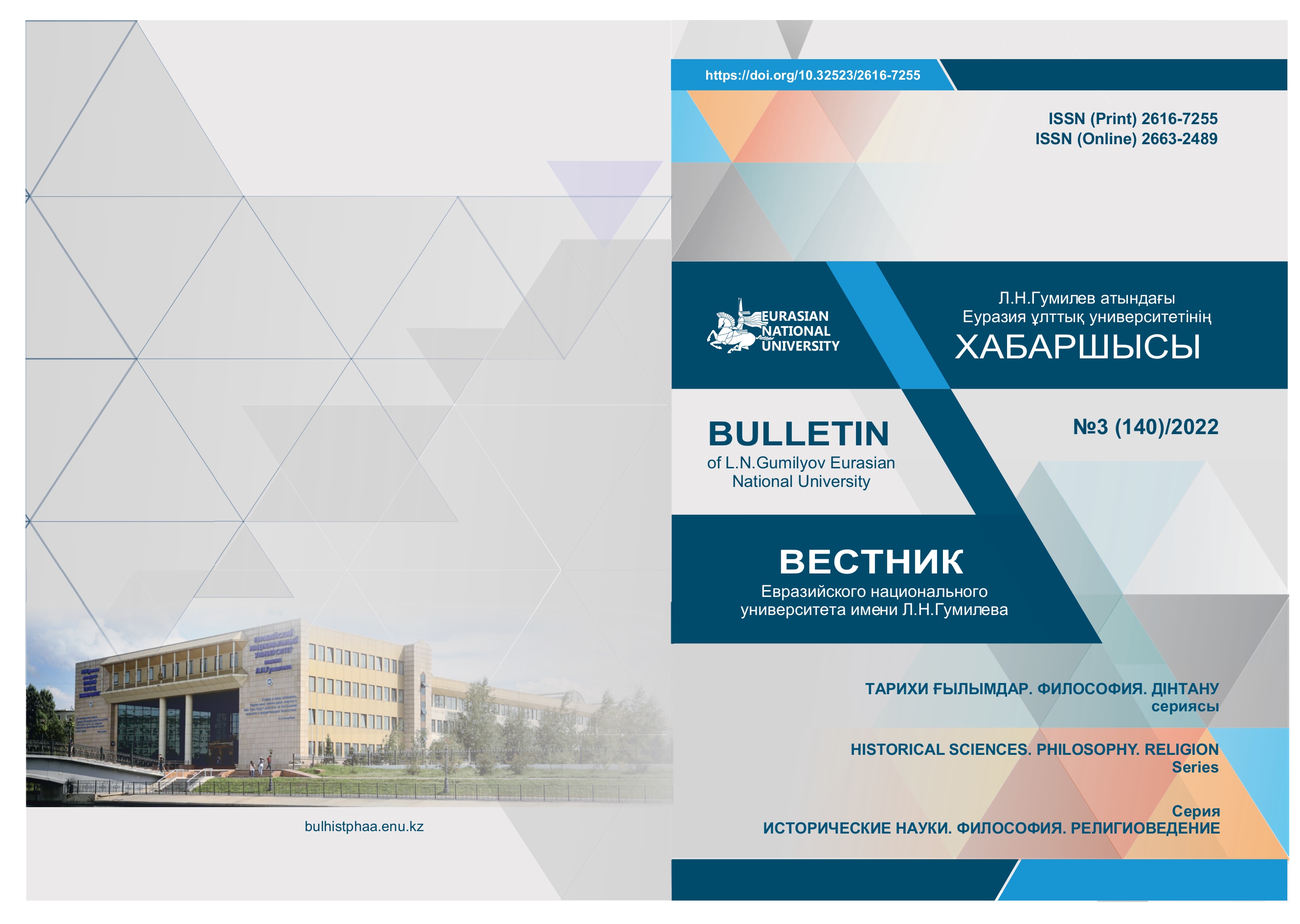The processes of adaptation of Koreans in Kazakhstan at the end of the XIX-XXth centuries
Views: 206 / PDF downloads: 337
DOI:
https://doi.org/10.32523/2616-7255-2022-140-3-21-38Keywords:
Korean; tsarism; adaptation; migration; colonization; deportation; ethnicity; rice farming; diaspora; fishing; resettlementAbstract
The relevance of the research is determined by the development and formation of the Korean diaspora in Kazakhstan in the 19-20th centuries which has become a stable component of the demographic, socio-economic, political, and cultural life of the republic, showing an example of a successful adaptation of an ethnic group in a foreign cultural environment. While studying the presented problem, we relied on works and documents, having studied which we were able to trace the processes of resettlement and adaptation of Koreans on the territory of Kazakhstan. The article highlights the stages of resettlement and adaptation of Koreans in Kazakhstan in the pre-revolutionary era, in the early years of Soviet power, during the deportation period in 1937-1938, and in the post-war years. Along with the stages of resettlement and the number of migrants, the types of adaptation are described in detail: economic, social, and cultural. The process of development of agriculture by Koreans in Kazakhstan, in particular rice farming, as well as fishing, is shown. Household adaptation is described in detail, which provided for the construction of dwellings adapted to the natural and climatic conditions of Kazakhstan, and the creation of Korean settlements. Attention is also paid to cultural and educational adaptation: the emergence of schools and other educational institutions, theaters, and the development of literature and periodicals. The socio-cultural relations of migrants with the indigenous population are highlighted. In conclusion, the conclusion is presented that, despite various historical events, Koreans were able to adapt to local conditions and actively engage in creative work for the development of Kazakhstan. When studying the history of the formation and development of the Koreans of Kazakhstan at the end of the 19-20th centuries, and the peculiarities of its cultural and social development, it is necessary to consider the basic layer of mentality that developed in the historical conditions of the former places of residence, as well as the ideological traits acquired in the tsarist and Soviet times. The Korean diaspora of Kazakhstan in the process of its development and formation at the end of the 19-20th centuries turned into a stable component of the demographic, socio-economic, political, and cultural life of the republic, showing an example of the successful adaptation of an ethnic group in a foreign cultural environment. The materials are of practical value since the application of this experience by the government will undoubtedly become the basis for practical application in the field of creating an atmosphere of interethnic harmony.
Downloads

Downloads
Published
How to Cite
Issue
Section
License
Copyright (c) 2022 Yerlan К. Dzhiyenalyev, Bulbul Shaken

This work is licensed under a Creative Commons Attribution-NonCommercial 4.0 International License.







